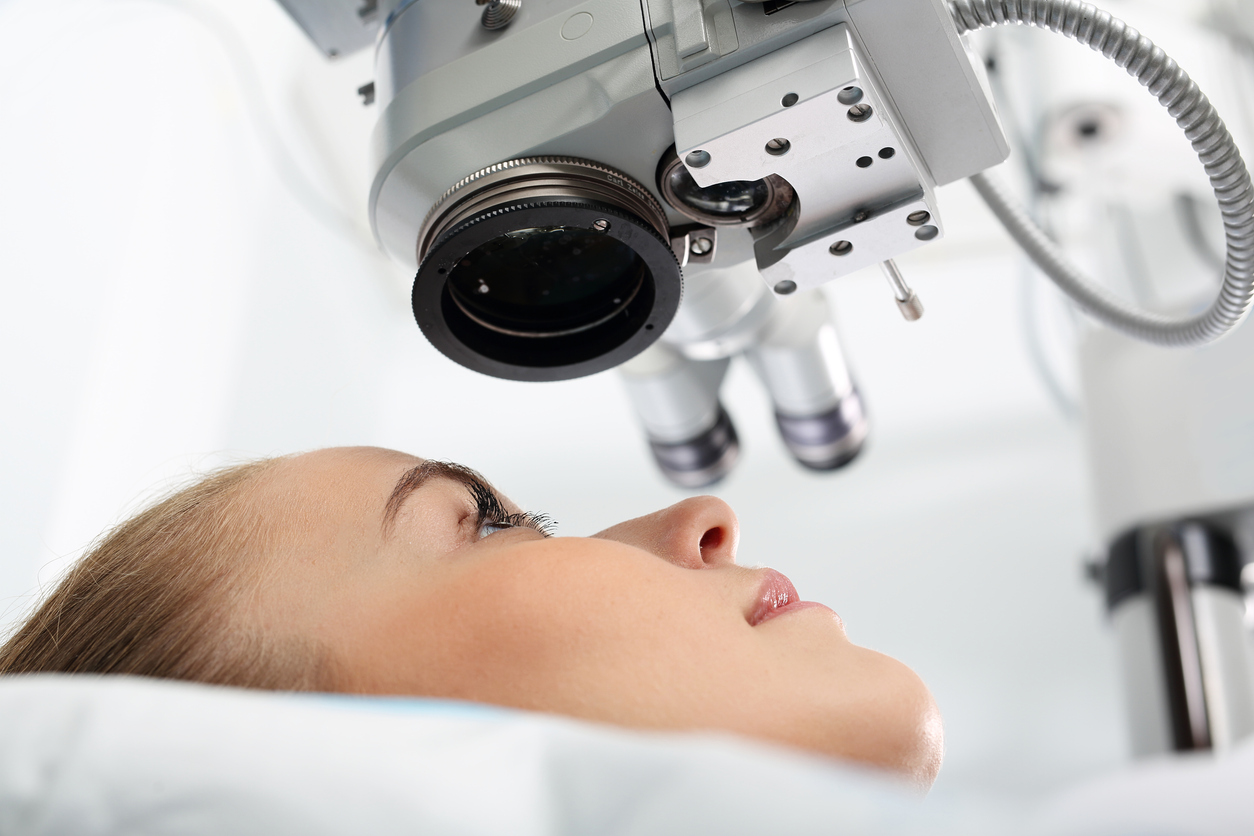LASIK Eye Surgery Jupiter, Florida
 LASIK stands for Laser Assisted In-Siti Keratomileusis, and is one of the most popular procedures performed. LASIK is a great option for many people considering laser vision correction because LASIK can greatly reduce or even eliminate a person’s dependence on glasses or contact lenses. Imagine being able to enjoy your every day activities, sports, and events with clear vision!
LASIK stands for Laser Assisted In-Siti Keratomileusis, and is one of the most popular procedures performed. LASIK is a great option for many people considering laser vision correction because LASIK can greatly reduce or even eliminate a person’s dependence on glasses or contact lenses. Imagine being able to enjoy your every day activities, sports, and events with clear vision!
Most vision disorders are caused by irregularities in the shape of the cornea, the outer part of the eye. The LASIK procedure has the ability to fix nearsightedness, farsightedness, and astigmatism by reshaping the cornea with a laser.
How does LASIK work?
During the actual LASIK surgery, your doctor will apply an anesthetic drop to numb the eyes for surgery. A lid speculum is used to hold the eyelid and prevent your eyelid from shifting or blinking during surgery. A laser is used to create a thin corneal flap and once this flap is gently folded back; the laser reshapes the cornea according to your specific vision needs. The corneal flap will then be moved back into place, where it will heal without the need for stitches. The procedure itself will take only minutes to complete and although your vision may be a little blurry at first, clear vision results are almost immediate with patients generally able to see clearly in just a few short hours.
LASIK Procedure
Is LASIK right for you?
The benefits of LASIK can greatly outweigh any risks for the procedure, but it is important that you only undergo LASIK if you are a qualified candidate. For active people who desire freedom from their glasses or contact lenses, laser vision correction may be your answer! If you believe you are a candidate for LASIK please make an appointment with Dr. Benaim for a comprehensive eye examination, where Dr. Benaim will discuss the clear vision and added benefits you will receive from LASIK.
LASIK is a surgical procedure, and like any other procedure there are risks involved. The most common LASIK complication is dry eye, or nighttime vision problems like halos or glare. Most patients find these complications to be insignificant compared to the new vision they have received through the procedure.
 New Address:
New Address: